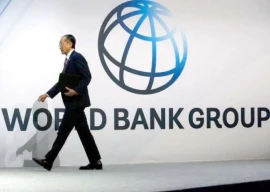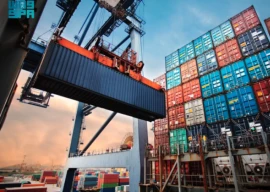
The current account posted a surplus of $205 million in 11 months (July-May) of financial year 2010-11, but it fell 69 per cent from a surplus of $662 million in 10 months as imports rose and exports fell, data released by the State Bank of Pakistan (SBP) shows.
Though exports stood at a record $22.78 billion in 11 months, they fell 13 per cent to $2.25 billion in May compared to a month earlier, when exports totalled $2.59 billion. Imports on the other hand rose 13 per cent to $3.27 billion in May compared to $2.91 billion in April.
In May alone, the current account recorded a deficit of $457 million compared to a surplus of $630 million in April.
BMA Capital’s Group Head of Equity Research Hamad Aslam attributed the decline in exports for May to a sharp drop in cotton and textile prices in the international market, which actually had taken the export figures to record highs this year. In the case of imports, he blamed high international oil prices of around $120 per barrel, which had the biggest share of around $12 billion in total imports of the country.
When compared with last year’s huge deficit of $3.4 billion, the current account has shown a marked improvement in 11 months of the current year on the back of a sharp increase in exports and record remittances sent home by overseas Pakistanis.
In 11 months, exports rose 27 per cent to $22.78 billion for the first time in the country’s history compared to exports of $17.88 billion in the same period last year. High cotton and textile prices supported the rise in exports but it is uncertain whether this will be sustained as commodity prices had started coming down for the last couple of months.
Remittances sent by expatriate workers surged 25 per cent to $10.1 billion, helped by a government crackdown on illegal money transfer and arrival of more foreign exchange due to the Middle East political turmoil.
However, Aslam believed that next financial year beginning July would be difficult in terms of maintaining a current account surplus. Citing reasons, he said the country would have to start repaying the loan taken from the International Monetary Fund and exports might not sustain the current year’s high levels due to fall in commodity prices.
In addition to these, there would be no charity money, which came after last summer floods and gave a boost to remittances.
Published in The Express Tribune, June 18th, 2011.




1732003896-0/Zendaya-(1)1732003896-0-165x106.webp)












COMMENTS (1)
Comments are moderated and generally will be posted if they are on-topic and not abusive.
For more information, please see our Comments FAQ